Is Preschool Education a Waste of Time and Money?
What Makes Preschool Valuable
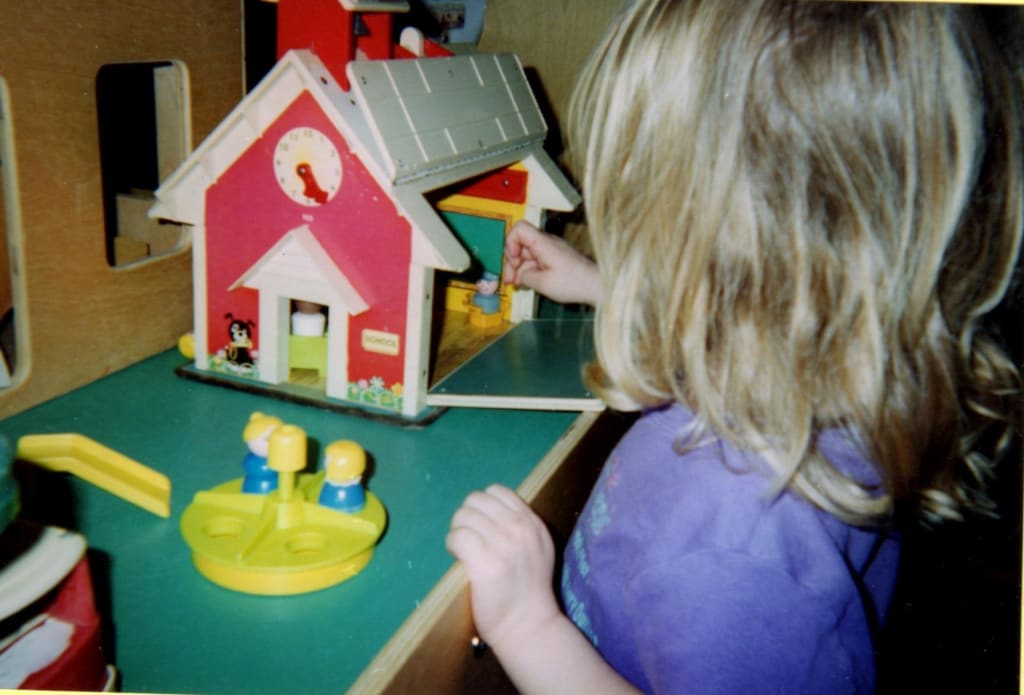
In September of 2018 John Rosemond published an article titled, “Leaning Toward Pre-K Education? You May Want to Think Again”. In this article he asserts that academic instruction for Pre-K students is a waste of time and money.
He is right. The key word here is ACADEMIC. Preschool and in many cases kindergarten age children’s brains are not ready for the abstract concepts presented in academic instruction. Their bodies are not ready to sit still for more than a few minutes at a time and they to learn social skills and spoken language before they are taught to read.
Research backs up my own observations that when children are pushed too hard at a young age to master abstract academic skills that they are not developmentally ready to embrace, many of them reach burn out by 3rd and 4th grade.
That is when the words most often heard are “I hate to read.” “I hate school.” “You are so mean.” And their attitude does not improve as they continue to move up the ladder into the older grades.
Most of them will succeed anyway, but they will not be happy, for what? Another eight years? That’s a long time to “hate school.”
And the ones who don’t succeed? Too many of our children are testing far below mastery in all areas. Yet there are more and more Pre-K programs in place pushing more and more academics. Pushing our youngest students is obviously not improving test scores for the older ones.
Yet, parents, teachers, politicians, school administrators and even some of the children themselves, expect these young children, who have only been in the world three or four years, to read and write BEFORE kindergarten.
Part of the problem is that the adults have forgotten that reading and writing is a very abstract concept. Adults are so immersed in it throughout their daily lives that they have forgotten how difficult it is to make sense of those little letters.
Young children are still trying to understand the concrete world right in front of them, they are still trying to master toileting, running, climbing, eating, dressing, spoken language, basic vocabulary etc. They still need to learn how to sit still, how to listen, how to solve conflicts and interact with peers and adults.
Their brains need to have all that in place before they are presented with such an abstract concept as reading and writing. They need to be able to negotiate their way through the world first. Young children need social/emotional skills, concrete experiences, lots of conversations, stories, dramatic play, puzzles, patterns, paint, mud, music, art, time and safe places to explore.
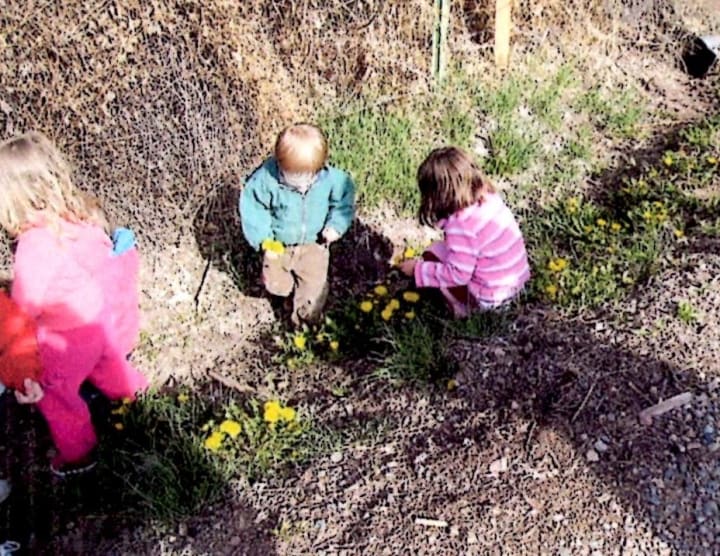
Children that have a safe place to explore the world at home and at preschool will be better prepared as they move into the upper grades in school. Children that have many opportunities to express themselves and increase their vocabulary in a safe, nurturing environment will continue to take risks and challenge themselves as they grow older.
This will allow them to master academics and foster continued growth in all areas as the children move into the upper grades at school. Elementary teachers have reported that children that attend a high-quality preschool or Pre-K program that emphasizes Social/Emotional growth over academics are more successful in school. These children are willing to try to learn new skills. They know how to play and how to interact with children and adults. They have better manners and are less disruptive. They are eager to learn, have a larger vocabulary and a better understanding of what is expected at school.
Parents looking to provide a learning environment at home or looking for the best preschool program for their child need to look at several things. What is the environment like? Are there lots of varied activities available? Does the majority of the day allow for the child to choose his activities? Are the children free to move around the room and move from one activity to another?
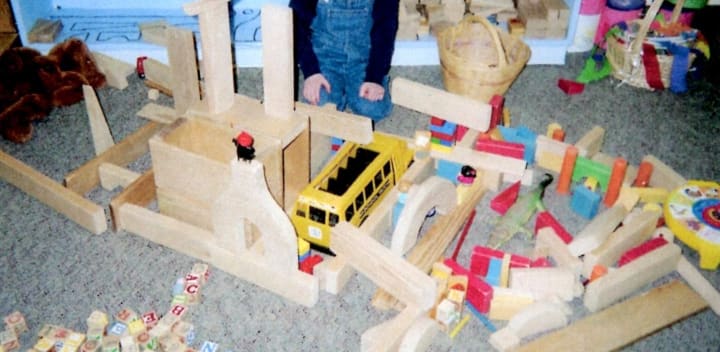
Are there distinct well-organized centers such as music, dramatic play, art, puzzles, library, blocks, sensory table and playdough? Are the children allowed to paint and use playdough every day? Are the adults actively engaged in the children’s play?
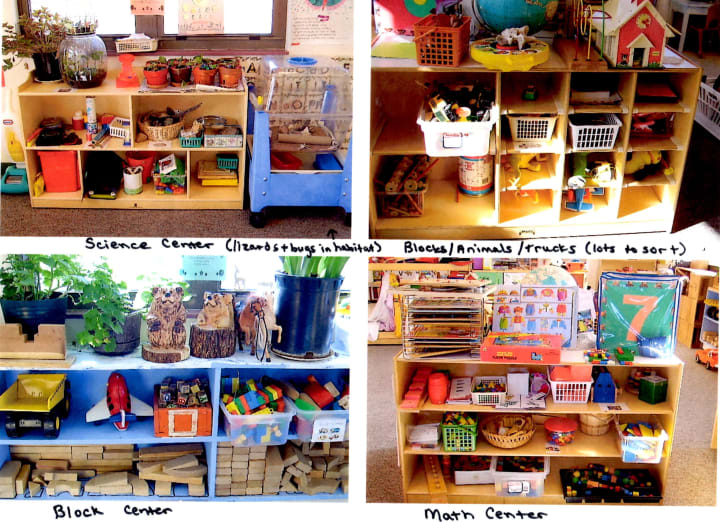
Do they have ample time to play outside? What are the expectations of the children? Will they be allowed to proceed at their own pace of learning? Will the parent be welcome in the classroom? Do the adults encourage strong relationships between the adults and the children? Do they model courteous conversation?
Are the expectations for the children’s behavior clear and consistent? Do the children have chores to do such as cleaning up, setting the table, helping each other with tasks? Is the environment welcoming and comfortable for small children?

Children need to be able to express themselves freely and use many different materials. It stimulates the brain when the five senses are presented with different experiences. Using materials with different tactile feelings, hearing different sounds and smelling and tasting different items grows more neurons in the children’s brains. The more connections made in the brain the better the children will be equipped when it is time to apply these experiences to academic skills as they grow older.
The more positive social connections children make when they are young, the better they will get along with teachers and peers as they grow older and the fewer conflicts the children will have. The fewer conflicts and distractions the better they will be prepared to learn in a classroom setting.
So much growth happens when children are small. These crucial years between birth and age eight set the stage for learning throughout their lives. How much better would it be for the child if he was given the concrete experiences, the confidence to explore, the love of learning at a young age.
I believe fewer children would say, “I hate school.” I hate reading.” I hate you.” if their brains were given the chance to learn at their own pace and follow their own passions. If the children’s brains were given the time to develop those early connections by being fed music, art, social play, stories, conversation and unconditional love; if they were given time to explore their world and make sense of it before being force fed abstract academics they aren’t ready for, I believe we would have children that love learning, enjoy challenges, are excited about possibilities, are able to behave appropriately and able to form lasting relationships with friends, teachers and family.
Is John Rosemond right? Is Pre-K education a waste of time and money? I say maybe. If it is done right, Pre-K can open up a world of opportunity. If it is done wrong, it can open up a world of hurt. It is up to the adults to provide the best opportunity for each child. It is up to the adults to look at the research available, to observe the children and to provide what they need to become life long learners that enjoy the challenges placed before them.
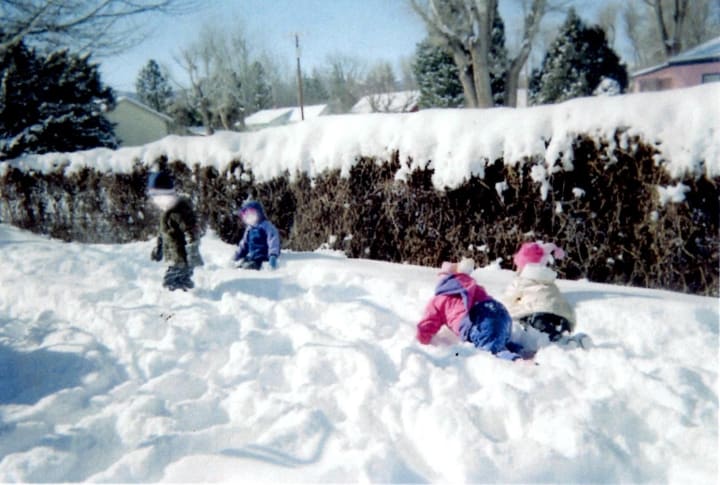
There are more articles about Early Childhood Education at my blog https://booksbubblesandblocks.com Please come and visit!
About the Creator
Morgan Alber
I taught preschool and reading for 19 years in a small rural school in Southern Colorado.
I have a B.S. degree in Biology, an AA in Anthropology, and a Master Herbalist Degree.
When I am not playing with my granddaughter, I love to read.
Enjoyed the story? Support the Creator.
Subscribe for free to receive all their stories in your feed. You could also pledge your support or give them a one-off tip, letting them know you appreciate their work.

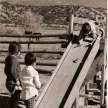




Comments
There are no comments for this story
Be the first to respond and start the conversation.